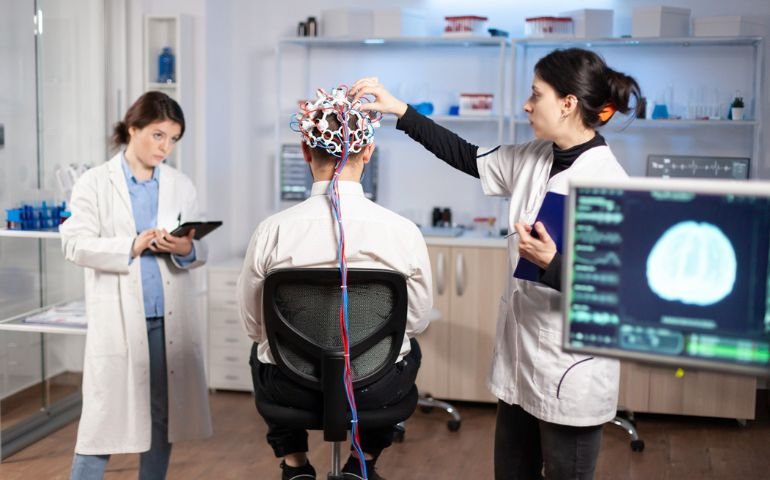The Neurophysiology Level 3 Advanced Diploma offers comprehensive training in neurophysiology principles, assessment techniques, data interpretation, patient care, and research advancements. Ideal for individuals pursuing careers in neurophysiology, clinical neurophysiology, neurology, or neuroscience. Develop essential skills in neurophysiological assessment, data interpretation, and patient communication through lectures, hands-on assessments, and clinical applications.
What Will You Learn?
- Gain a solid understanding of neurophysiology principles and concepts.
- Learn neurophysiological assessment techniques, including EEG, EMG, and nerve conduction studies.
- Explore the clinical applications of neurophysiology in diagnosing and managing neurological disorders.
- Develop skills in interpreting neurophysiological data accurately and effectively.
- Enhance patient care and communication skills in the context of neurophysiological testing.
- Stay updated with the latest research advancements and technological innovations in neurophysiology.
Who Should Take The Course?
- Individuals pursuing careers in neurophysiology, clinical neurophysiology, or neurology.
- Healthcare professionals, including neurophysiologists, neurologists, neuroscientists, and clinical researchers.
- Medical laboratory technicians interested in neurophysiological testing and analysis.
- Students aspiring to enter the field of neuroscience or clinical neurophysiology.
- Anyone with a keen interest in understanding the functioning of the nervous system and its clinical applications.
Requirements:
- Basic knowledge of biology, anatomy, and physiology.
- Strong interest in neuroscience and neurophysiology.
- Access to neurophysiological equipment and facilities for practical assessments.
- Commitment to active participation in lectures, hands-on sessions, and clinical applications.
- Willingness to engage in continuous learning and stay updated with advancements in the field.
Course Curriculum
-
- Ethical considerations in neurophysiology 00:10:00
- Neurons and neural communication 00:10:00
- Neurophysiological techniques and equipment 00:10:00
- Overview of the nervous system 00:10:00
-
- Electroencephalography (EEG) 00:10:00
- Electromyography (EMG) 00:10:00
- Evoked potentials (EP) 00:10:00
- Nerve conduction studies (NCS) 00:10:00
- Polysomnography (PSG) 00:10:00
- Epilepsy and seizure disorders 00:10:00
- Neuromuscular diseases and disorders 00:10:00
- Neurophysiology in neurological disorders 00:10:00
- Sleep disorders and sleep studies 00:10:00
- Effective communication with patients 00:10:00
- Ethical and legal considerations 00:10:00
- Interprofessional collaboration 00:10:00
- Patient preparation and safety 00:10:00
- Exam of Neurophysiology Level 3 Advanced Diploma 00:50:00
Course Reviews
4
- 5 stars0
- 4 stars1
- 3 stars0
- 2 stars0
- 1 stars0
New Courses
Blogs
Jul'23
ADHD Training for Teachers: Empowering Educators to Support Students with Attention Challenges
Relationships may be severely harmed by narcissistic behaviours, leaving emotional scars and...
Jul'23
Narcissistic Behaviour and Relationships: Understanding the Impact and Finding Healing
Relationships may be severely harmed by narcissistic behaviours, leaving emotional...
Jul'23
Childhood Trauma in Adults
What Is Childhood Trauma? Childhood trauma refers to distressing or...
Jul'23
Creating A Social Media Strategy
Set Clear Objectives:The first step in developing a successful social media...
Jul'23
Neuro-Linguistic Programming Techniques
Neuro-Linguistic Programming (NLP) is a fascinating and widely acclaimed approach...
Jul'23
Acceptance and Commitment Therapy in the UK
What is acceptance and commitment therapy? Acceptance and Commitment Therapy...






A good beginners guide to clinical neurophysiology